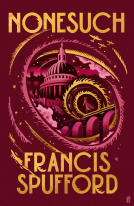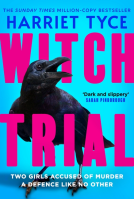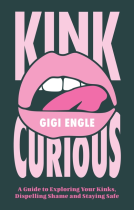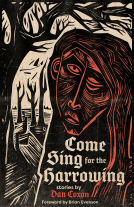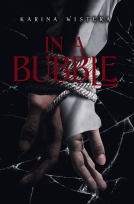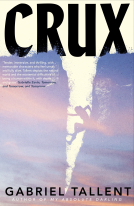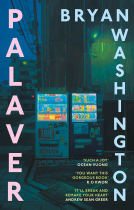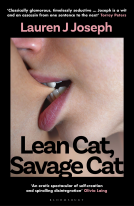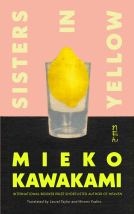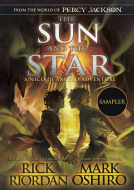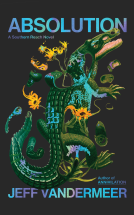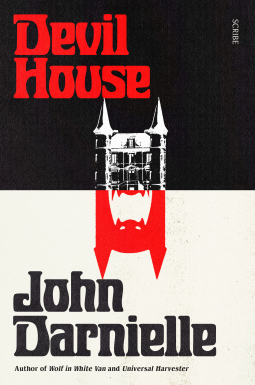
Devil House
by John Darnielle
This title was previously available on NetGalley and is now archived.
Send NetGalley books directly to your Kindle or Kindle app
1
To read on a Kindle or Kindle app, please add kindle@netgalley.com as an approved email address to receive files in your Amazon account. Click here for step-by-step instructions.
2
Also find your Kindle email address within your Amazon account, and enter it here.
Pub Date 14 Apr 2022 | Archive Date 1 Mar 2022
Talking about this book? Use #DevilHouse #NetGalley. More hashtag tips!
Description
From New York Times bestselling author and Mountain Goats singer/songwriter John Darnielle, an epic, gripping novel about murder, truth, artistic obsession, and the dangers of storytelling.
Gage Chandler is descended from kings. That’s what his mother always told him.
Chandler is a true crime writer, with one grisly success — and movie adaptation — to his name, along with a series of subsequent lesser efforts that have paid the bills but not much more. But now he is being offered the chance for his big break: to move into the house — which locals call ‘The Devil House’ — in which a briefly notorious pair of murders occurred, apparently the work of disaffected 1980s teens. He begins his research with diligence and enthusiasm, but soon the story leads him into a puzzle he never expected — his own work and what it means, the very core of what he does and who he is.
John Darnielle has long been known to millions of Mountain Goats fans as a storyteller of uncanny sensitivity and mythic power. In Universal Harvester and Wolf in White Van he has proven himself a novelist of the highest order. With Devil House, Darnielle rises above with a novel that blurs the line between fact and fiction, combining daring formal experimentation with a gripping tale of crime, writing, memory, and artistic obsession.
Advance Praise
‘This smart, twisty novel about true-crime books and the 1980s “Satanic panic” is a fine fit for him and his best so far ... he’s excellent at getting into the uncomfortable details of abusive homes and how fear sparks an urge to escape both physically and creatively ... An impressively meta work that delivers the pleasures of true-crime while skewering it.’ – Kirkus Reviews
‘[R]iveting … Darnielle flays the conventions of true crime to reveal the macabre and ordinary brutality behind sensationalised stories of violence … This masterwork of suspense is as careful with its sharp takes as it is with the bread crumbs it slowly drops on the way to its stunning end. It operates perfectly on many levels, resulting in a must-read for true crime addicts and experimental fiction fans alike.’ – Publishers Weekly
‘A visceral and bravura subversion of the true-crime genre, Devil House is an empathetic forensic examination of those left behind after the blood has been mopped, body parts collected, and vultures have gorged their fill. A sense of dread permeates Darnielle’s latest opus, leaving you wondering how much we can ever truly know about the dark secrets communities carry in their collective consciousness.’ – Chris Flynn, author of The Mammoth
Available Editions
| ISBN | 9781914484247 |
| PRICE | £14.99 (GBP) |
Links
Average rating from 29 members
Featured Reviews
A true crime author gets lost within his own narrative
Mountain Goats singer, writer, and guitarist is now four books deep into a wildly creative literary career which began back in 2008 with a trippy look at the Black Sabbath album Master of Reality, seen from the point of view of a character in a mental hospital. This was an early indication that Darnielle was not going to follow standard literary conventions, with his subsequent releases Wolf in White Van (2013) and Universal Harvester (2017) being even more wildly off-beat than his debut. I (sort of) loved both books, which also had me scratching my head, with the former concerning a text-based, role-playing game played through the mail and the latter a 1990s video shop (remember those?) discovers weird and disturbing home recordings secretly taped over their cassettes.
Darnielle returns with Devil House and, surprise surprise, true to form, his latest release is anything but a conventional work of fiction. To be frank, if it was, I would probably have been disappointed and ultimately I expect the unexpected with this refreshingly original author. Like all his previous work there is much to enjoy, balanced with a fair amount of head scratching, not everything gels 100% together, but it was still a highly ambitious and original read. John Darnielle does not write traditional horror, what he produces is an intoxicating blend of literary fiction which dances around the genres and is notoriously tricky to classify.
Devil House is his take on the world of true crime literature. Some years earlier main character Gage Chandler wrote a very successful true crime book based upon teacher Diana Crane who was convicted for murdering two students who forced their way into her home. This was a notorious incident which was later turned into a film ‘The White Witch of Morro Bay’, interestingly, Devil House also includes numerous flashbacks to the double murder as Chandler receives letters from somebody close to the case which forces it back into his consciousness, even though this book is several years in his rear mirror. I enjoyed the way the two past and present cases were vaguely blended together and the thought processes it gives to someone working and writing up a true crime case, presented in a very down to earth and non-sensationalist manner, for example, buying packages of old newspaper clippings from Ebay during the research.
Although the main case was non-supernatural it reminded me of the hit film Sinister. A true crime writer buys the house which was previously the scene of a gruesome murder and plans to research and write about it. Sound familiar? You bet it does. Gage is looking for his next big hit and buys a house which was the scene of an unsolved double murder fifteen years earlier. What was fascinating about this was that the murders did not make headline news, even though it took place in the 1980s Satanic Panic era and looked ritualistic in nature. The setting of the killings was an adult book and video shop which was hugely unpopular with the local residents. Much of Devil House is built around Gage Chandler’s findings of the protagonists who were around at the time and were the potential murderers or accomplice. This aspect the book failed to deliver as these characters were pretty bland and one-dimensional, but you could also argue that this was partly due to the shortcomings of his research and lack of embellishment.
I thoroughly enjoyed another curveball Darnielle threw at the reader; the setting was the small Californian town of Milpitas, if you are a true crime buff then that might ring your bell as it was the setting of the 1986 hit film starring Keanu Reeves Rivers Edge which was based on the notorious 1981 murder of Marcy Renee Conrad, where many teens know of the murder but fail to initially report it. This story bubbles away in the background and had me reaching for Wikipedia to familiarise myself with the true facts of the original incident. Gage Chandler is aware of this and hopes his latest investigation will have the same national impact. However, the story we read fails to bring the sleepy town of Milpitas to life and although he lives there for some time I would like to have seen more of him integrating with the locals, something he fails to do except for a couple of brief occasions. Ultimately, there seemed little point in actually living in the murder house as it added little to the story.
Like all of Darnielle’s fiction for many this will be a love it or hate it type of book which tries very hard to come across as authentically true crime, however, bizarrely also throws in jarring old-English ‘Descended from Kings’ passages connected to Arthurian England. I found these passages to be unnecessary and pretentious and the story would have been much tighter if they had been abandoned in favour of something which joined the dots of the main story more naturally.
Devil House is a puzzle and some of the meandering narratives do not make perfect sense, but they are not meant to, as Gage Chandler also finds himself lost in his own true crime narrative. It asks lots of interesting questions, such as what should an author do if he cannot solve the puzzle? What if there is not a big answer which zips everything together into a nice package? Do you make it sexier by making stuff up? If this is the case, what personal ethics and morals come with covering such crimes via book form or film? John Darnielle delves into these questions with style, grace and wisdom, and such is his style refuses to answer his own questions!
Devil House is an ambitious, sprawling true-crime novel that also functions as a take-down and subversion of the entire genre: Gage, Darnielle's protagonist, makes his living by inhabiting the shells of murder scenes ans spinning narratives, but in his latest obsession - the vaguely Satanic-scented Devil House, a derelict former adult bookstore - he starts to question his own relationship to victims and victimhood. This makes for compulsive reading, with multiple narrative threads and points of view (including some not altogether successful incursions into Medieval English) coming together to an ultimately perfectly unsatisfying conclusion. Very smart stuff, and I enjoyed it immensely.
 Zoe R, Reviewer
Zoe R, Reviewer
This is one hell of a book, written like a true crime but with elements of other stories it fuses myth and how society makes more of some murders then they actually are and how legends and horror stories grow over time. It also highlights society looking down on people without homes or even families which can lead to damaging and tragic consequences. This is one book to make you think.
 Emma S, Bookseller
Emma S, Bookseller
As I was reading Devil House, I was unclear what I thought or felt about it because it is very definitely not what I thought it was going to be. I haven't read any of Darnielle's other work (or listened to his band) so I was expecting a slightly-above-pulpy horror with maybe some comment on true crime as a genre, but Devil House is much much more than that. That divergence of expectations and reality made my first read an odd experience and I skimmed some of the middle sections, waiting for the "main" narrative to pick up again. It wasn't until the end and a seemingly throwaway reference to Frankenstein's Monster that the structure clicked. I finished the book, went back to the bits I'd skimmed and read them again. Then I made a diagram of all the nested stories. And then I read it again.
It's been a few days since I finished Devil House, and I've read a whole other novel between then and now, but it is still wriggling under my skin in the unsettling way that only really clever, really good books do.
Devil House is a multilayered metafiction told in a nonlinear format divided into 7 parts. I thought it’s interesting how Part 7 is the other side of Part 1, Part 6 of 2, and so forth. It gave me different perspectives on the murder cases involving a teacher and her students, and a landlord and her tenants. Like the author’s previous book Universal Harvester, this isn’t easy to digest. There are first, second, and third-person POVs so sometimes I wasn’t sure who was telling the story at first. Part 4 is the weakest; an Old English tale about kings that links to the writer’s royalty lineage but doesn’t feel relevant. However, the stream-of-consciousness prose felt immersive and made me feel as if I lived inside the characters’ heads.
Admittedly I’m not the biggest fan of true crime because it can feel exploitative and this book makes that particular point too. Yet I don’t think it’s a criticism of true crime - rather it asks questions about the responsibilities of authors and the aftermath of wading into other people’s lives. Whose narrative deserves to be heard? Especially in stories like this, where there are the horrors of abuse, regret, and loneliness, but also the strength of friendship, connection, and home. Maybe I’m the only one but I felt quite moved by the end.
CW: domestic violence, child abuse
This is a delight for true crime fans (like myself). I'm ordering a copy to keep it in my bookshelf, I know I will re-read it very soon. The plot was interesting, but what kept me going was all the thick descriptions of the crimes and the connection between the rest of the characters with these cases. My main interest was on the consequences of true crime writing and consuming, which was a bitter sensation. Darnielle's writing is impressive.
Readers who liked this book also liked:
Rick Riordan; Mark Oshiro
Children's Fiction, LGBTQIA, Teens & YA
